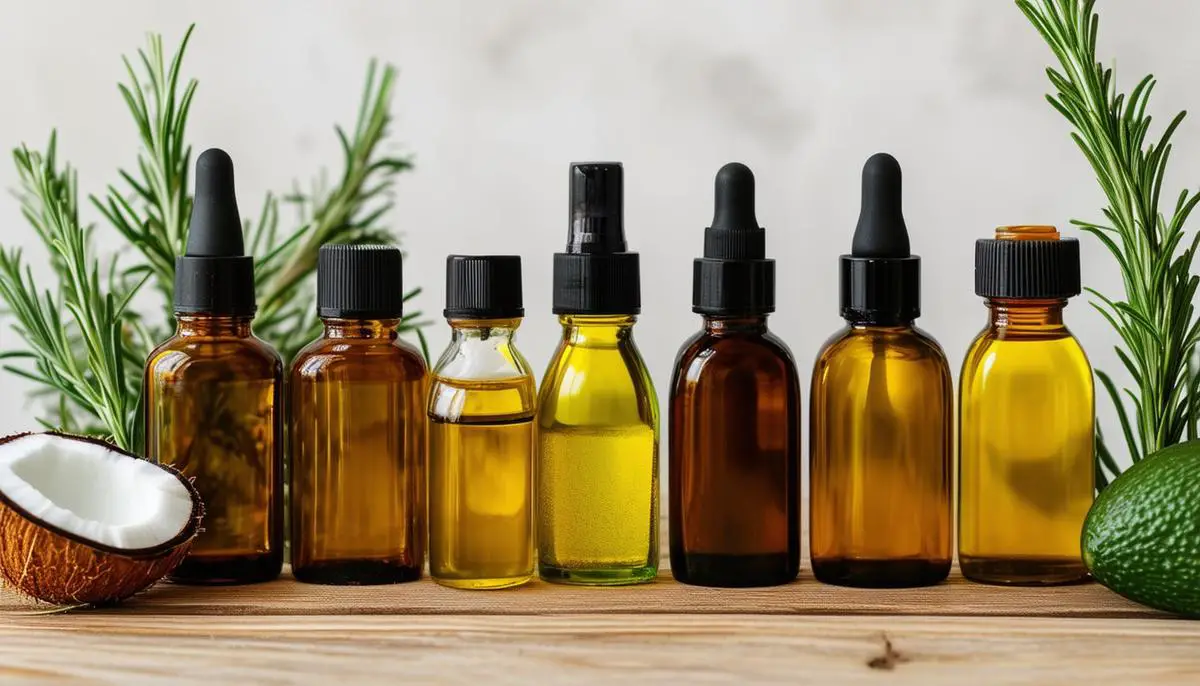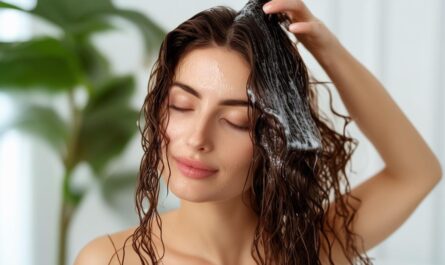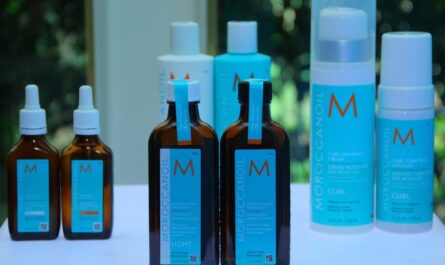Natural oils offer numerous benefits for hair care. From promoting growth to enhancing shine, these oils provide a holistic approach to maintaining healthy locks. Each oil brings unique properties and advantages, making them valuable additions to any regimen.
1. Rosemary Oil
Rosemary oil can support hair growth and scalp health. Its antioxidant properties promote circulation, creating a healthy scalp environment. To apply:
- Dilute rosemary oil with a carrier like coconut oil
- Massage into your scalp
- Leave for 30-60 minutes before washing
This ensures good absorption and avoids irritation. Rosemary oil has a pleasant scent and may be as effective as minoxidil for hair growth, according to some studies.
Benefits of other oils:
- Coconut oil: Tackles hair damage, reduces protein loss
- Argan oil: Great for dyed hair, combats dryness
- Jojoba oil: Ideal for thinning hair, regulates oil production
- Lavender oil: Promotes growth, has antimicrobial properties
- Peppermint oil: Stimulates blood flow, soothes irritation
- Tea tree oil: Addresses scalp conditions like dandruff
- Grapeseed oil: Offers lightweight hydration, fights frizz
- Olive oil: Excellent for deep conditioning treatments
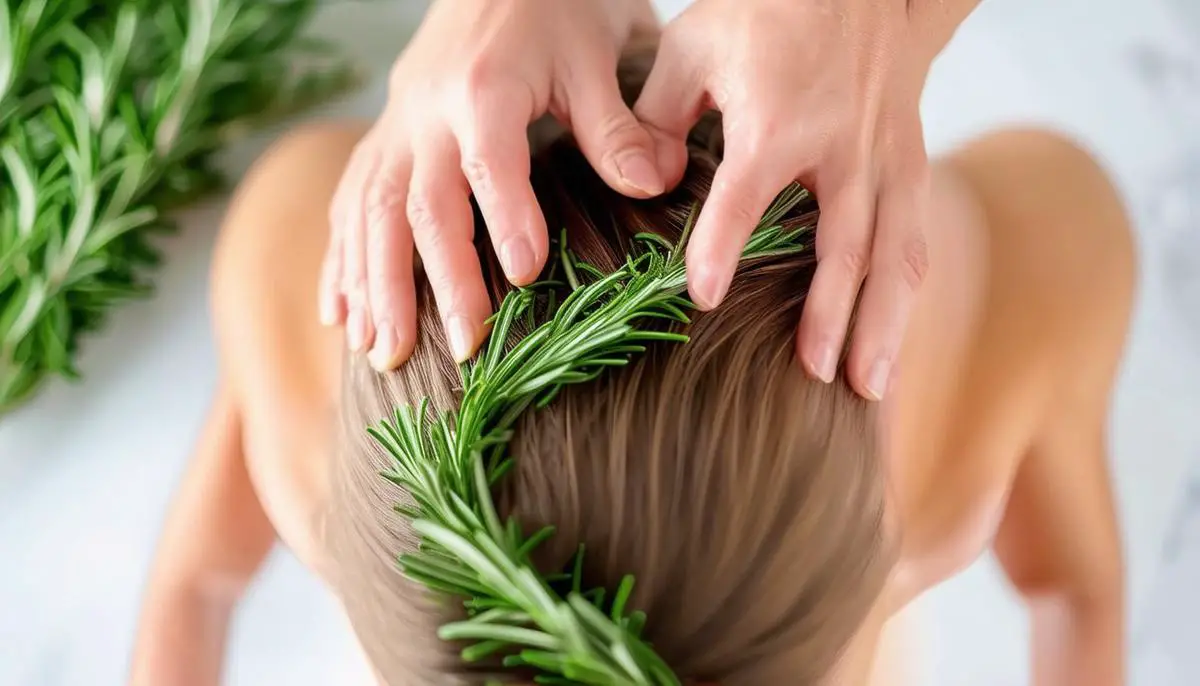
2. Coconut Oil
Coconut oil penetrates deep into the hair shaft, thanks to its lauric acid content. This saturated fat reduces protein loss, strengthening hair from within and making it more resilient against breakage and styling damage.
"Coconut oil's moisturizing properties benefit all hair types and work well for both pre-wash treatments and leave-in styling."
To use coconut oil as a pre-shampoo treatment:
- Warm 1-2 tablespoons of oil
- Massage into your scalp and hair
- Let it sit for at least 30 minutes
- Rinse thoroughly
This process helps retain moisture and rebuild strength, leaving hair shinier and more manageable. Regular use infuses hair with essential nutrients for health and strength.
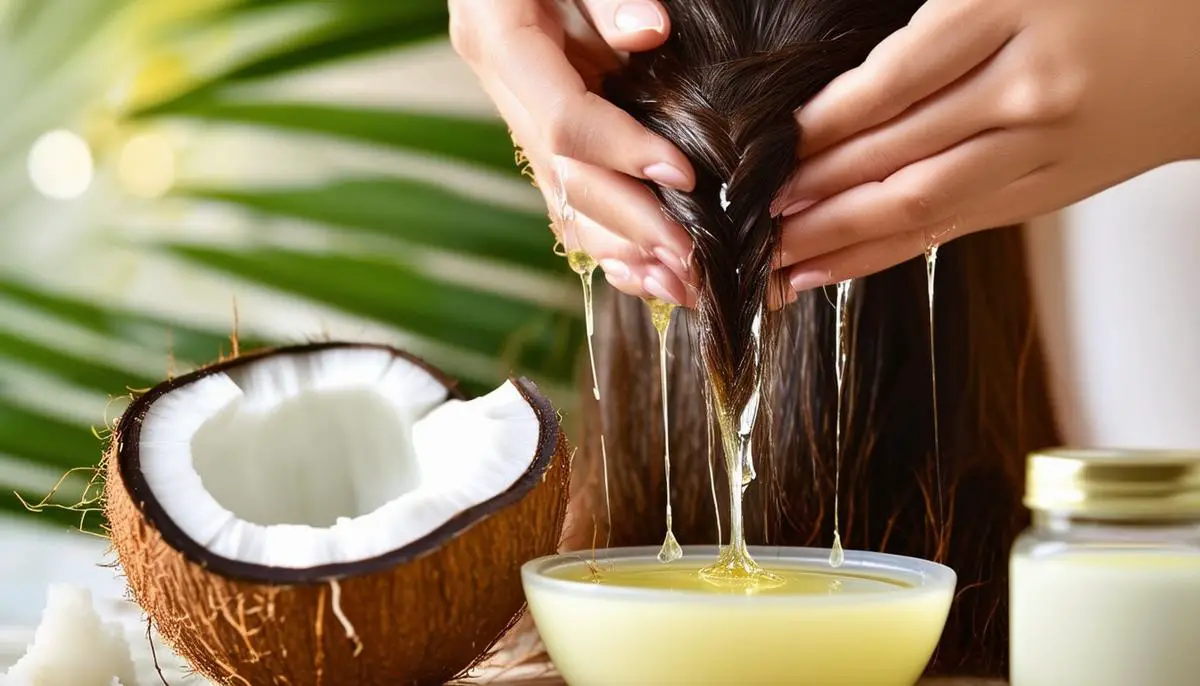
3. Castor Oil
Castor oil, rich in ricinoleic acid, effectively moisturizes the scalp and improves blood circulation. This creates a nourishing environment for hair follicles, potentially leading to thicker, stronger hair.
To use castor oil:
- Mix with a carrier oil like jojoba or coconut oil
- Section your hair
- Massage gently into your scalp
- Leave on for up to an hour (or overnight)
- Wash with a sulfate-free shampoo
Regular use can combat dryness, reduce breakage, and add shine to your hair. Note: If leaving overnight, protect your pillow from oil stains.
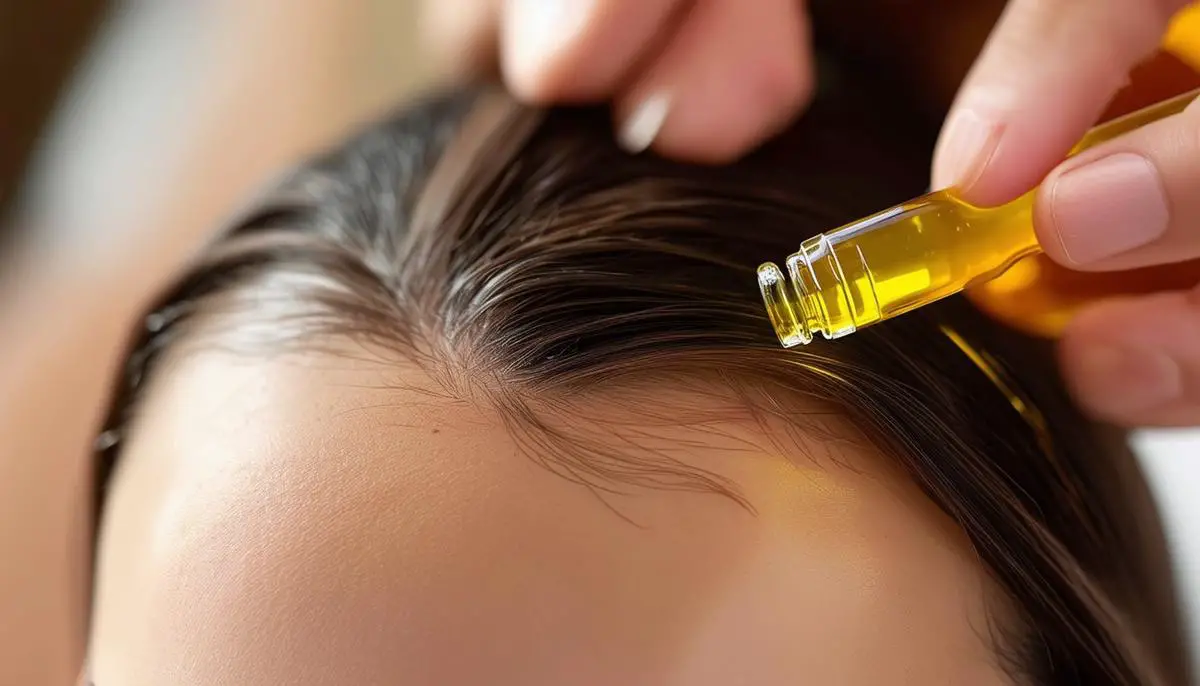
4. Argan Oil
Argan oil, rich in essential fatty acids and antioxidants, is particularly beneficial for color-treated hair. It conditions and protects against damage from chemical treatments.
How to use argan oil:
- Apply a few drops to your hair, focusing on ends and dry areas
- Massage it into your scalp as well
- Leave the oil in for about 10 minutes
- Wash with a gentle shampoo and conditioner
This treatment leaves hair softer, shinier, and more manageable. Argan oil’s lightweight nature makes it suitable for all hair types. Regular use can maintain color vibrancy, combat frizz, and restore shine while protecting against environmental damage.
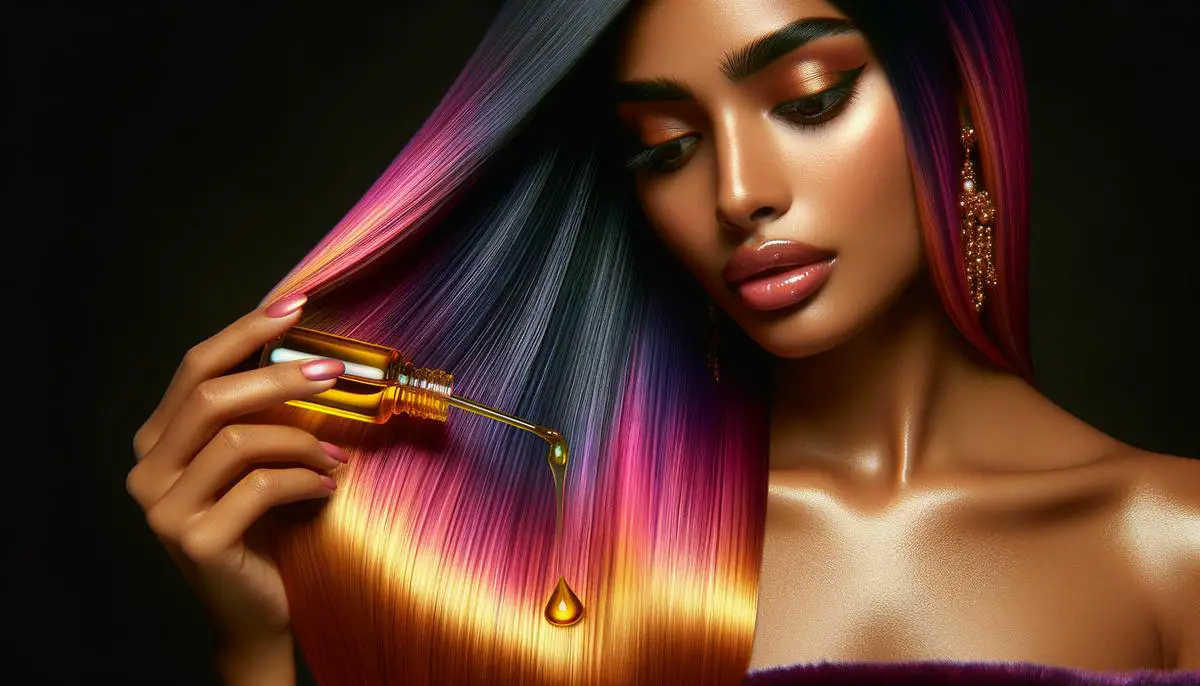
5. Jojoba Oil
Jojoba oil‘s composition closely mimics natural scalp sebum, making it effective at regulating oil production. Its liquid wax and fatty acid content provide deep moisturization, reducing protein loss and strengthening hair.
Ways to use jojoba oil:
- Add a few drops to your shampoo or conditioner for consistent moisture
- Apply directly to your scalp as a pre-shampoo treatment
- Use as a leave-in conditioner on ends and dry sections after washing
Jojoba oil is particularly beneficial for those with scalp conditions like dandruff, as its anti-inflammatory properties can soothe irritation.
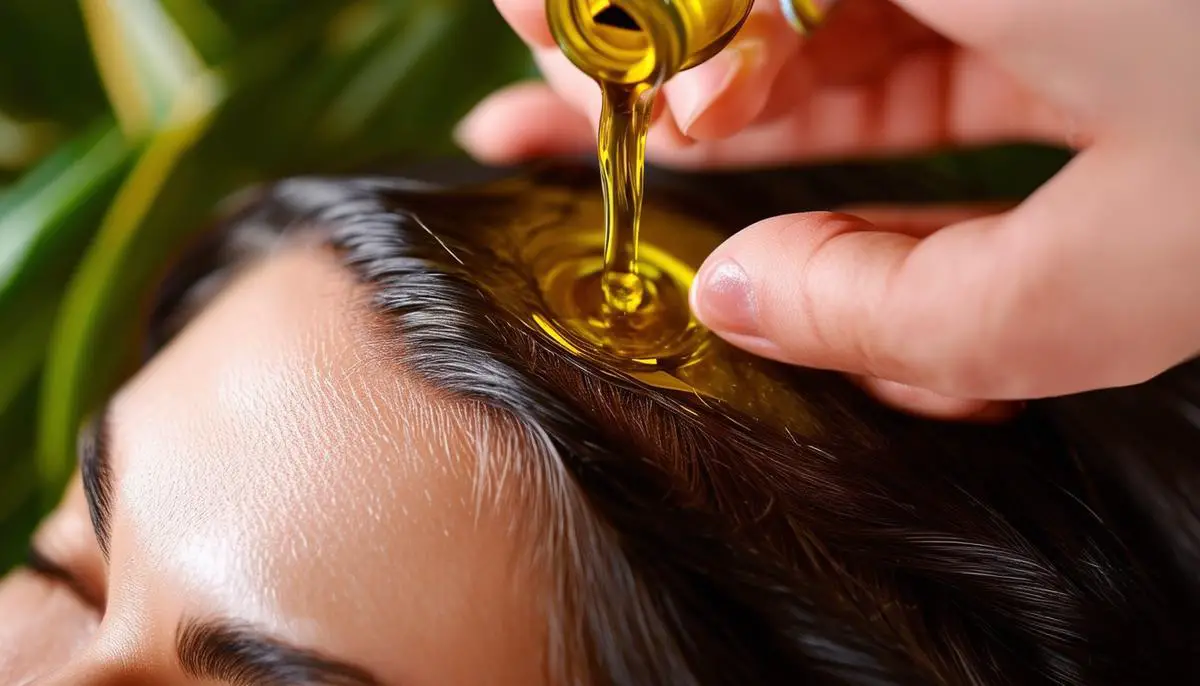
6. Avocado Oil
Avocado oil, rich in Vitamin E and essential fatty acids, moisturizes and strengthens hair. It’s particularly beneficial for dry, brittle hair, sealing the cuticle to lock in moisture and provide a smoother, shinier finish.
To use avocado oil:
- Warm 1-2 tablespoons of avocado oil
- Apply to the ends and driest parts of your hair
- Massage gently, focusing on areas needing the most care
- Leave the oil in for about 30 minutes
- Shampoo and condition as usual
Regular use can result in softer, less frizzy, and more resilient hair. Avocado oil provides a natural way to boost shine and strength without harsh chemicals.

7. Peppermint Oil
Peppermint oil promotes hair growth and scalp health through its cooling properties, which enhance blood flow to hair follicles. To use:
- Dilute with a carrier oil like jojoba or coconut oil.
- Massage the blend into your scalp.
- Leave for 15-20 minutes (or up to an hour for intensive treatment).
- Rinse thoroughly with gentle shampoo.
Weekly treatments can relieve itchiness and manage scalp conditions. The oil’s anti-inflammatory and antimicrobial properties soothe dandruff and irritation.
Regular use stimulates hair growth, strengthens hair, and leaves your scalp feeling refreshed. A 2014 study on mice found peppermint oil led to more hair growth than minoxidil after four weeks of treatment.
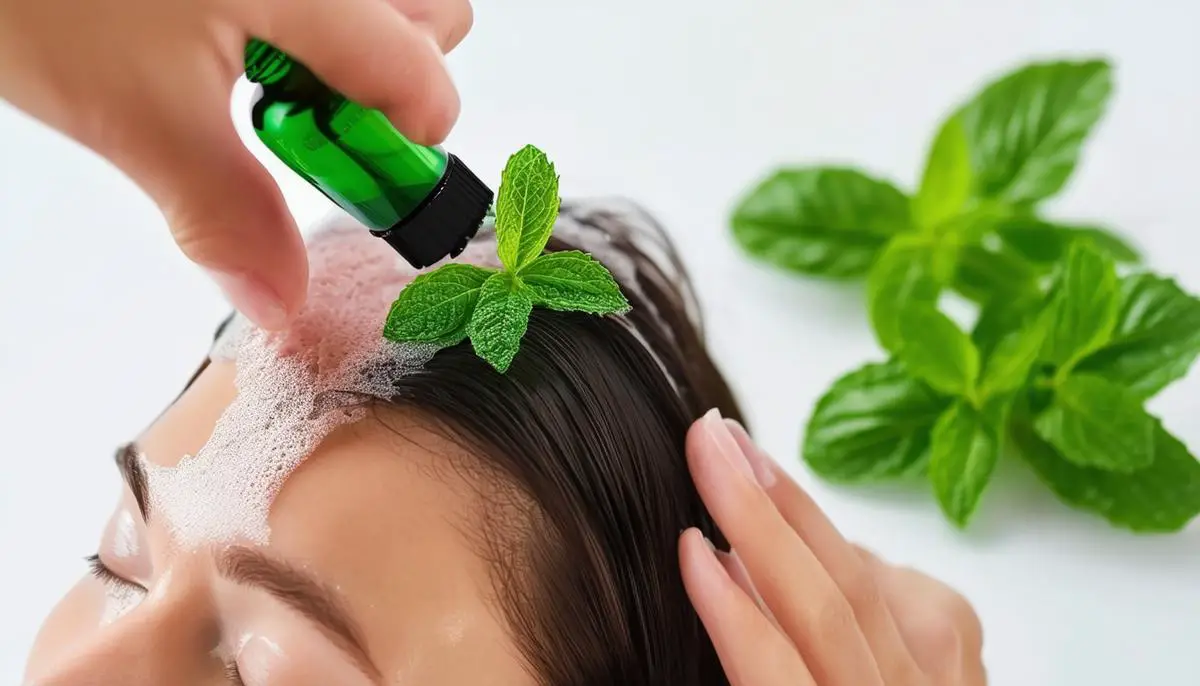
8. Tea Tree Oil
Tea tree oil effectively combats dandruff and scalp irritation with its anti-inflammatory, antiseptic, and antifungal properties. To use:
- Add a few drops to your shampoo, massage into scalp, and rinse after 1-2 minutes.
- For targeted treatment, dilute with a carrier oil and apply directly to scalp. Leave for 20-30 minutes before washing out.
Consistent use maintains a balanced scalp environment, ideal for healthy hair growth. It keeps the scalp clear of harmful microbes that can hinder growth or cause irritation.
Research shows that tea tree oil shampoos have antifungal properties that could help improve dandruff buildup. A 5% tea tree oil solution has been found to effectively reduce dandruff, with a 41% improvement compared to 11% in a placebo group.
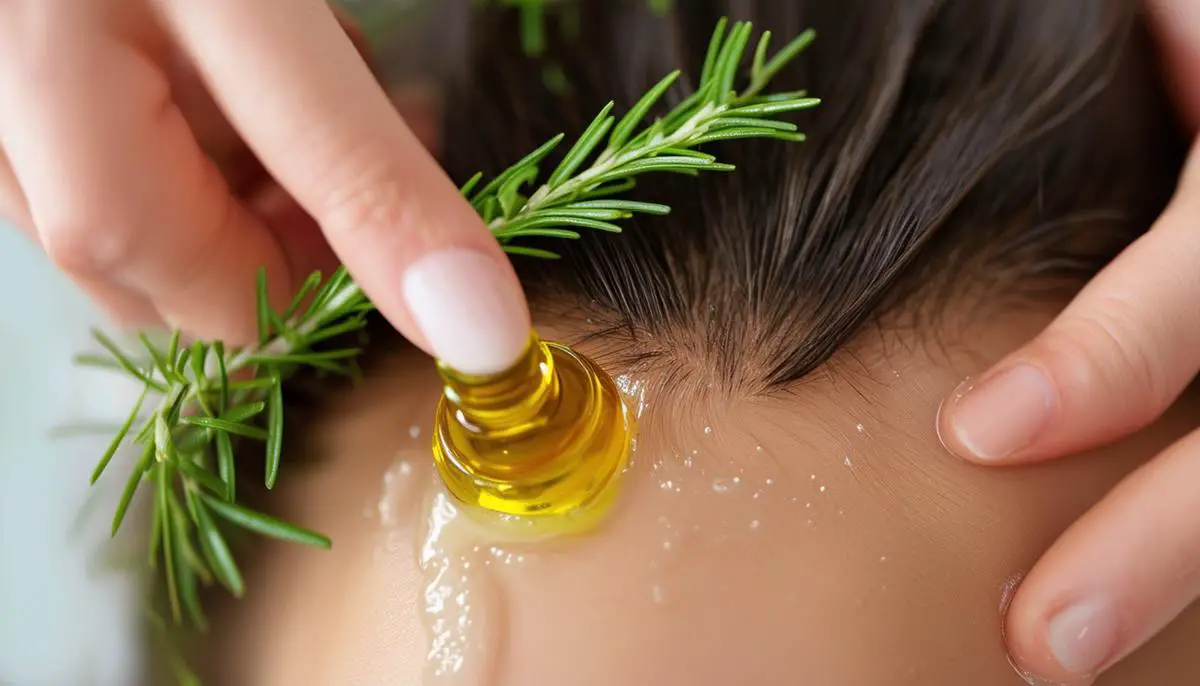
9. Olive Oil
Olive oil deeply conditions and revitalizes dry, brittle hair. Its monounsaturated fats penetrate hair fibers, restoring moisture and creating a protective barrier. To use:
- Warm 1-2 tablespoons of oil.
- Apply to mid-lengths, ends, and scalp.
- Leave for at least 30 minutes.
- Shampoo thoroughly and condition as usual.
Use sparingly, especially for fine or oily hair. Weekly treatments can reduce frizz and improve overall hair health. Studies have found that natural body heat allows olive oil to penetrate deeper into the hair shaft, leaving a thin protective layer on the outside.
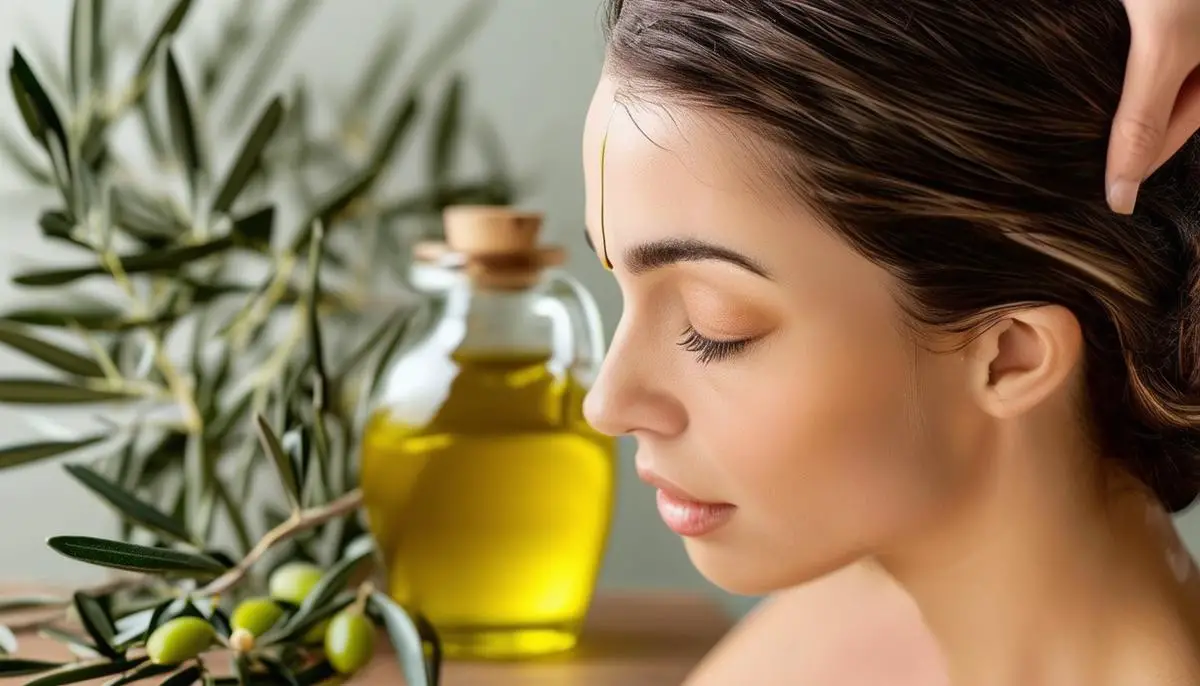
10. Sweet Almond Oil
Sweet almond oil addresses dullness, dryness, and UV damage with its lightweight texture and fatty acids. It can be used on wet or dry hair:
- As a leave-in treatment: Apply a few drops to mid-lengths and ends.
- For heat protection: Apply to towel-dried hair before styling.
- To tame frizz: Smooth a tiny amount over trouble spots.
This versatile oil absorbs quickly, leaving hair soft and shiny without greasiness. It’s suitable for all hair types and protects against UV damage. Sweet almond oil contains fatty acids that can protect against ultraviolet radiation, which can cause hair dryness, brittleness, loss of color, and decreased luster.
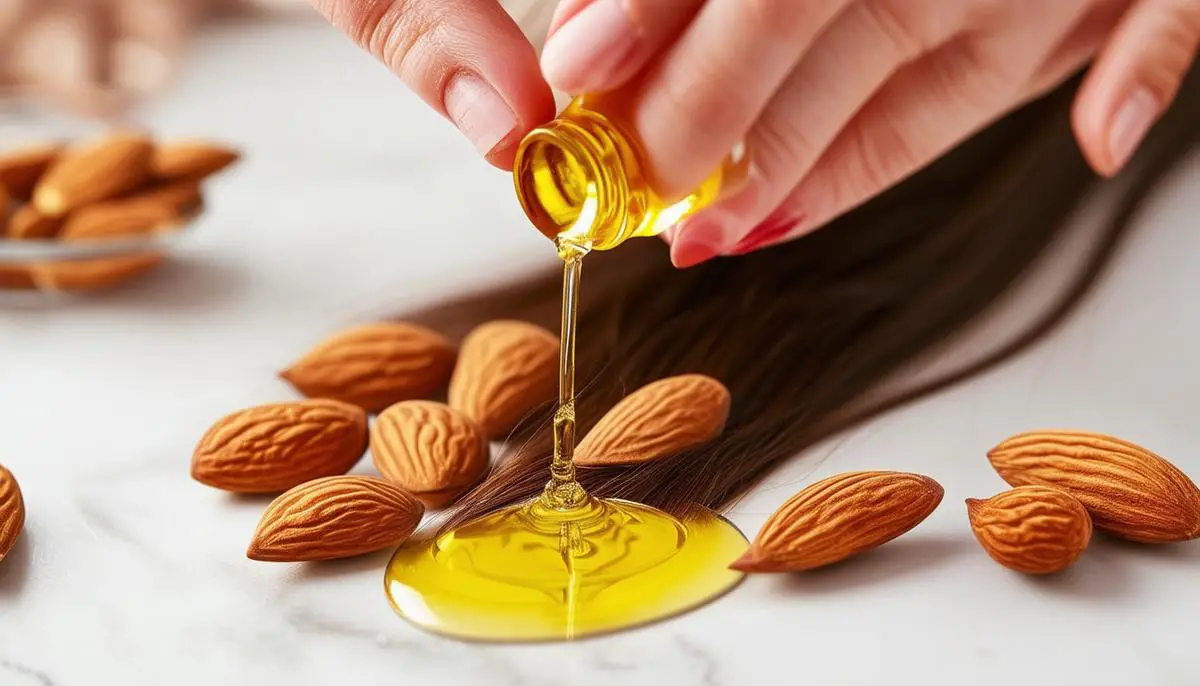
Incorporating these natural oils into your hair care routine can improve hair health and appearance, offering simple yet effective solutions for stronger strands and a healthier scalp. Remember to always dilute essential oils with a carrier oil before application and perform a patch test to check for any allergic reactions.

